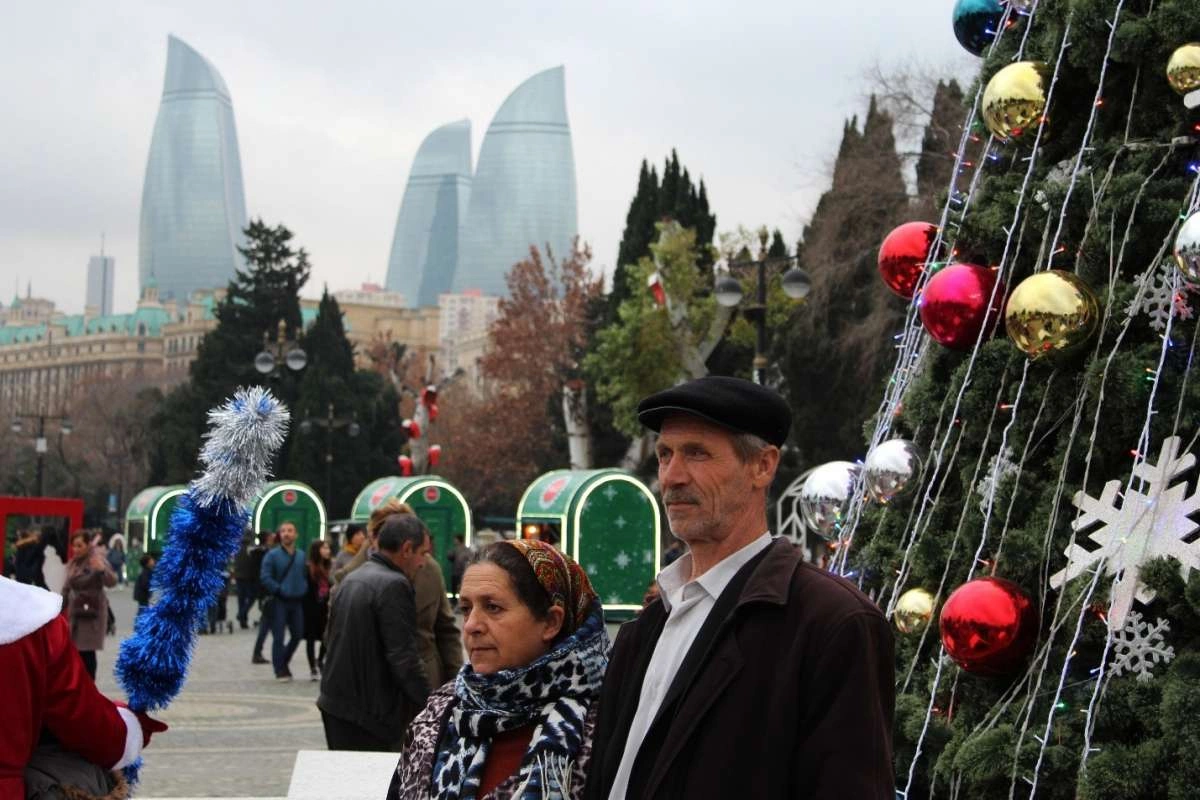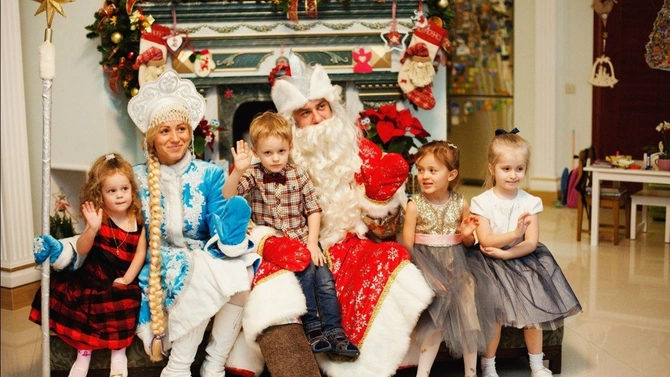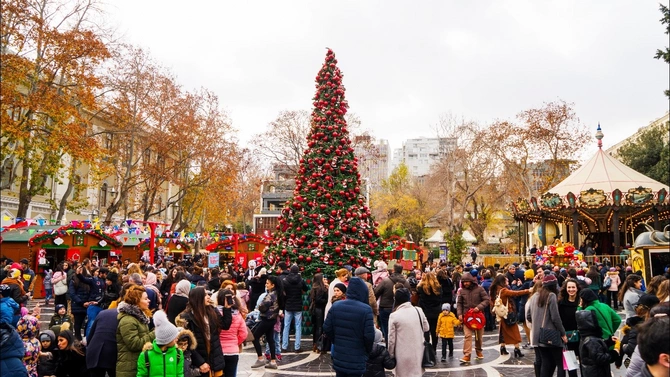
Nailya Bentley explains that although the holidays in Azerbaijan look a lot like Christmas in the west, it's something entirely different. Say hello to Grandfather Frost and his sidekick, Snow Girl, living relics of the USSR.
Image: Fabio Sansone Traveler/Shutterstock
Can you believe a whole year has passed, and it’s the winter holiday season again?
Considering we basically lost 2020 altogether, I guess 2021 was not as bad.
December is my favourite month, even if it does remind me of just how fast time flies. As a non-religious person from a Muslim country, I love the winter holidays. Naturally, Christmas is not something we traditionally celebrate back home in Azerbaijan. I got into it for cultural reasons, being married to a Brit. But it’s not just me. I believe that most Azerbaijani people are quite relaxed about accepting other traditions. We tend to enjoy any excuse for eating and celebrating with family, whatever the religious or cultural background may be.
And New Year? That’s a big one for us.
One of the best New Year celebrations I ever had was back in Baku when four of my international girlfriends and I sneaked a bottle of Champagne and a large jar of black caviar into the jacuzzi of Baku’s Hyatt Regency Hotel. There we sat for an hour, laughing and drinking. Not only did we have Champagne, but one of the girls produced crystal glasses out of her sports bag… wonderfully crazy of her, in her very Russian way. Our US-born friend tried to protest, citing health & safety issues, but was told to “stop being so American.” And stop she promptly did – after the first glass and a large spoon of caviar. Oh, the good old crazy days!
People back in the UK, as well as here in my temporary home of Qatar, are often confused about what I celebrate and why. I often get asked whether we celebrate Christmas back in Azerbaijan. I usually explain that it’s a Muslim country, so no, we do not.
However, having been part of the Soviet Union for 70 years, we do celebrate the New Year[1]. And in a very particular way.

Image: Makeeva Larisa Yurievna. Masteri-prazdnika.ru
First of all, there is what Azerbaijanis call Shakhta Baba, or, to use his original, Russian name - Ded Moroz. If you think you can translate his name as Father Christmas, then think again: Soviet holidays and their folkloric representatives had to be strictly non-religious. Therefore, the Soviets invented their own version. Ded Moroz literally means Grandfather Frost. He might look like Santa, but life is a whole lot more exciting than that of his Christian relative. For a start, instead of the reindeer, he has a hot blond girl with long plaited hair following him around.
The girl is called Snegurochka, which means Snow Girl, or Qar Qiz in Azerbaijani.
The official story is that Snegurochka is Ded Moroz’s granddaughter.
She is usually the most popular character at New Year children’s parties, called Yolkas (‘not Christmas’ tree parties). Every child in post-Soviet countries like Azerbaijan must have attended one of those big New Year parties at some point in their lives. Snegurochka was there to mostly look pretty and sing songs, but also help to gather children around the tree to play games and to give out bags with chocolates and candy.
At home, we would have a tree – it’s not called a “Christmas tree” but it still gets decorated in much the same way you might find anywhere else. The whole New Year thing is a fascinating example of how old habits can linger for years and generations to come, becoming traditions even when they had originated in wholly different cultures.
Early in the 1990s, when Azerbaijan had just become an independent country, there was an attempt to cancel New Year. However, the move quickly failed due to the lack of support from the people, and officially or not, New Year has continued to be celebrated ever since.

At the New Year Market in Central Baku’s Fountain Square, patrons visit dozens of stalls to buy gifts, hot food and drink, and get their photo taken with ‘Grandfather Frost.’ Image: Dilara Mammadova/Shutterstock
As December progresses, every TV channel and virtually every shop still sports Yeni İliniz Mübarek (Happy New Year) signs. And Azerbaijanis keep decorating seasonal trees in their flats.
New Year’s Eve is a very special time for Azerbaijanis. We get together with our families and loved ones. We roast a chicken and prepare a Russian salad, bake cakes, and eat a lot of tangerines. Everybody telephones everybody, so the lines go crazy. We normally stay at home till the countdown and toast with sparkling wine. Only then will the younger ones go out to parties. I love New Year back home.
In the UK, by comparison, I found New Year to be a non-event really. Some young people will get together for a party; perhaps they will chuck a few fireworks up in the air and share a sip of Champagne. But the rest of us just stayed at home, recovering from the Christmas and Boxing Day shenanigans, watching boring TV shows in which Sir Paul McCartney struggles to prove he still has his mojo.
Wherever I am, I never allow this time of the year to pass unnoticed. To me, New Year will always be special. It smells of my childhood, tangerines and chicken in the oven. There’s a saying that “the way you greet the New Year is the way your whole year will go”. Don’t ask me where that comes from. I can’t tell you whether it’s a Russian or an Azerbaijani thing - but I believe it’s true. So, I always try to celebrate with the people I love the most, wearing the colours that the particular year demands (is that a Chinese tradition?) and eating the foods I love.
Whatever you celebrate, have a good one this year. May Shakhta Baba’s force be with us, and may it keep the Omicron away.

[1] The ‘Western’ (solar) New Year – lucky us, we also have Islamic (lunar) New Year to celebrate, though the date for that changes every year.
Share on social media